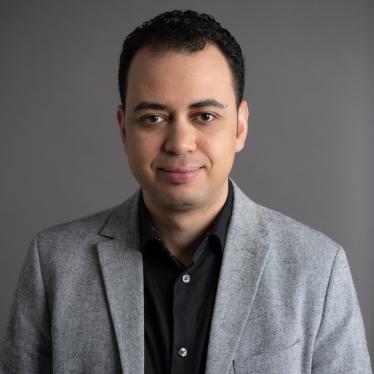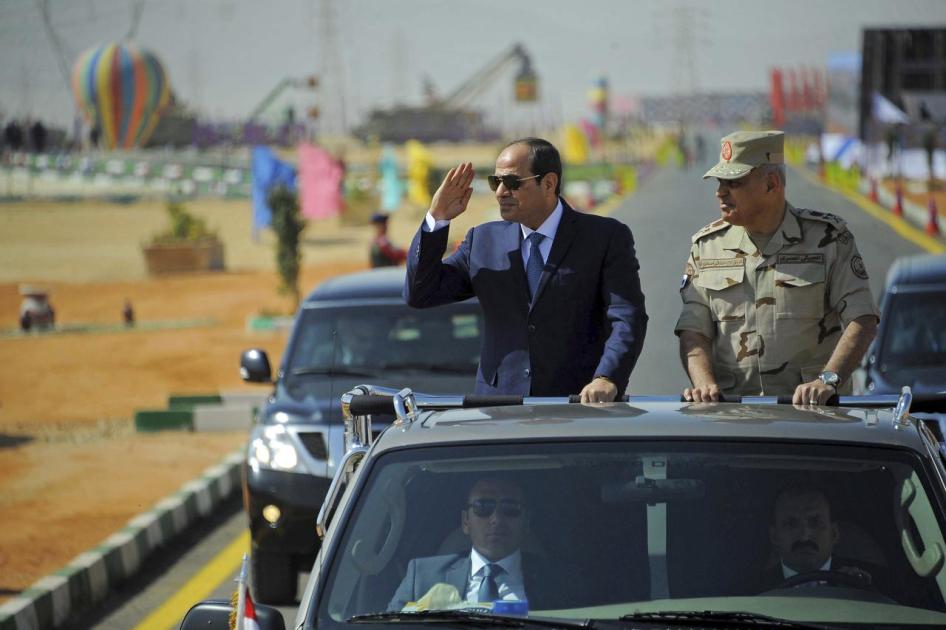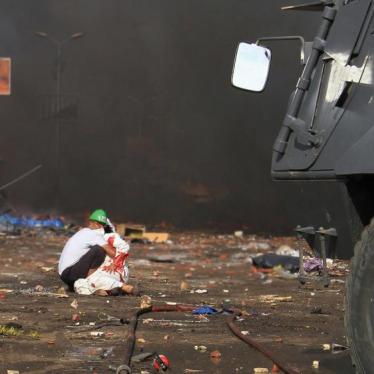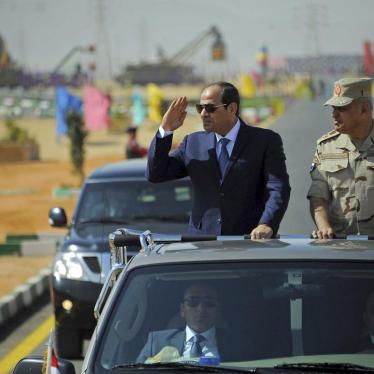Egypt’s highest appellate court this month confirmed 12 death sentences, including for several high-profile Muslim Brotherhood leaders convicted in an unfair mass trial for participating in the 2013 Rabaa sit-in.
This is the first time death sentences have been upheld for high-profile opposition leaders, including a former member of parliament and an ex-minister who served in late former President Mohamed Morsy’s government. Dozens of others have ended up on death row after similarly unfair, politicized proceedings.
Egypt cannot afford more executions. The country has been locked in a political crisis, with grave abuses by security forces now making daily news. Carrying out more executions will undermine prospects for any future transitional justice efforts to heal the country. Under President Abdel Fattah al-Sisi’s government, Egypt has been executing people at an unprecedented rate, making it the world’s third-worst country in terms of numbers of executions in 2020, according to Amnesty International. In October and November alone, Egyptian authorities executed at least 57 men and women, 49 of them in just 10 days. These included at least 15 men convicted in cases of political violence after unfair trials.
The spree of executions continued into the first half of this year, with at least 51 executions. Nine were executed during the Muslim holy month of Ramadan, when those on death row would have felt relatively safe, knowing that executions are traditionally put on hold; one was 82 years old. The examples of this state-sponsored savagery go on and on.
Eradicating opposition
In a nutshell, Sisi’s government has been on a mission to eradicate all forces of potential opposition stemming from Egypt’s nationwide 2011 uprising. To cut to the usual deceptive narrative: yes, there have been violent terrorist attacks that killed and wounded security forces and members of the public, and those responsible should face fair trials and go to prison.
But these scores of executions are, more than anything else, the product of a relentless effort by Sisi’s security establishment to reshape Egypt’s political and social spheres according to the government’s own autocratic vision. Sisi’s government has almost uniformly co-opted the judicial system. The constitution and fundamental laws have been amended, and new laws have been introduced to circumvent due process guarantees or remove them altogether.
Egyptian authorities have appointed special judges to the so-called terrorism courts, and they have issued hundreds of death sentences. They do not shy away from making clear where they stand politically, denigrating all opposition and praising the army and security forces. Sisi’s government also introduced amendments in 2017 to undermine the independence of the top appeals court, a once highly respected institution that acted as a check on many flawed criminal trials.
Sisi’s government has instrumentalized the judiciary to imprison and execute political dissidents and to aggressively raise the costs for dissent, sending the message that criticizing or opposing the government can literally cost people their lives. The Rabaa death sentences are the “natural” price for those who challenged the military overthrow of Morsy that Sisi led in 2013.
Morsy himself died in detention in 2019, completely isolated from the outside world, having been denied medical treatment. The same thing happened to Essam el-Erian, another senior Muslim Brotherhood leader who died in custody last year.
And let’s not forget that in Rabaa in August 2013, security forces killed an estimated 1,000 largely peaceful pro-Morsy protesters in a matter of hours. By the end of the Rabaa sit-in dispersal on 14 August 2013, security forces seized just over a dozen guns and only about a handful of Muslim Brotherhood members were killed during the dispersal.
This was an extraordinarily violent assault that was anything but an operation to pinpoint the few armed protesters amongst tens of thousands of peaceful ones. The subsequent Rabaa trial was likewise anything but a fair effort to identify and prosecute those responsible for unlawful violence.
Wholesale repression
No official has been held accountable for the Rabaa massacre or other incidents that likely constituted crimes against humanity. Facing less domestic and international pressure, Sisi has become bolder in his wholesale repression. Today, the state executes Muslim Brotherhood leaders who are not particularly well-known or liked in the West; tomorrow, it could execute leftist or secularist political opponents, or anyone who might constitute a serious political challenge. The prevailing side always builds a discourse to justify its abuses.
Sisi speaks about a world in which Egyptians have “another humanity” different from the “West”, and he claims that executions are justified in Muslim culture. But according to many Muslim scholars, in Islam, the right to life is inherent and holy.
Even under the prevailing interpretations of sharia that provide for the death penalty, it is limited to a handful of crimes, and only when all fair-trial guarantees have been met. And even in such cases, amnesty is highly encouraged.
Some scholars have said that the punishment should be halted during times of societal crises, and in many Muslim-majority countries, capital punishment has been suspended or eliminated.
An open society can undertake a broader discussion of subjects such as the death penalty, including views that see no contradiction between state security or sharia and eliminating the death penalty. But such discussion is not possible in today’s Egypt, where the slightest challenge to official narratives can lead to being labeled a “terrorist” and prosecuted as such.
There is no evidence suggesting that executions help reduce violence or crime. In fact, the minority of countries where the death penalty is still exercised are mostly states that lack political freedoms, stability, security, or social justice.
The sharp rise in executions in Egypt reflects a society in crisis. More executions are not a solution. Sisi’s government should not be further fueling the human rights crisis it has created.










